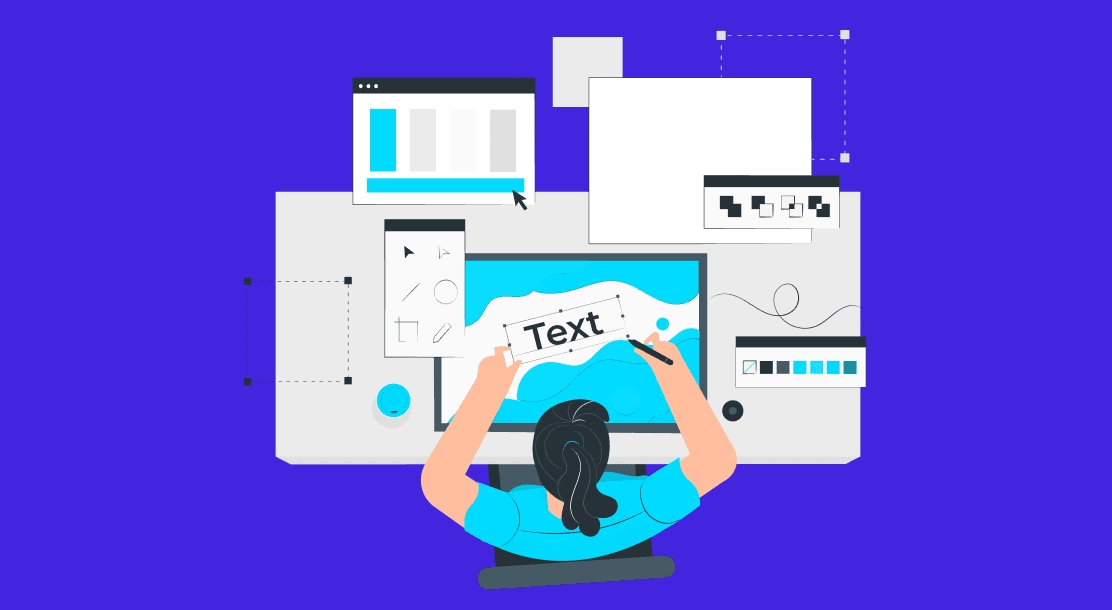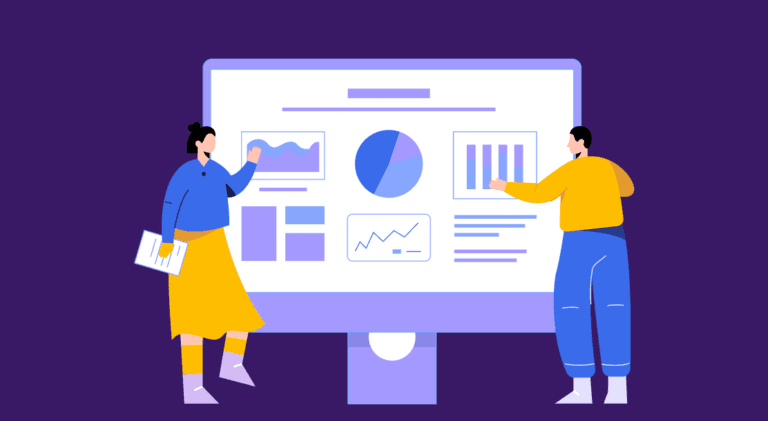
The perfect resume design can often be the difference between landing an interview and getting passed over, so it’s important to put a lot of thought into its design. Your resume needs to be as attractive and informative as possible, which will make you stand out from other applicants and give hiring managers something to remember.
Even if you have the best qualifications and experience out there, if your CV doesn’t look good, it could end up in the trash before anyone even reads it. Designing the perfect resume can be tricky, especially if you don’t know where to start or how to format things properly. This article will provide you with the important tips for designing the perfect resume.
Tips to Design the Perfect Resume
A resume is an important tool when applying for a job. After you have a working draft of your resume design, it’s time to create a template that potential employers can use to view your background.
This should be simple, clear, and easy to read so that no unnecessary information is lost or forgotten. This can help a potential employer learn more about you, giving them insight into what to expect if they hire you.
It can also guide your design and content. For example, a graphic designer’s resume might consist of small photos of each piece (with small captions) or snapshots from word documents. Here are some tips on how to design the perfect resume.
1. Decide on the format

Decide on your career path and whether you’re applying for a job at a creative agency, tech company, or in-house at a Fortune 500 company. You’ll also want to consider whether your career is heading towards management and executive-level positions. This will help you decide which resume format best suits your needs.
While there are many different formats out there, we recommend sticking with one of these four:
● Chronological (functional)
● Hybrid (combination)
● Skills-based or targeted
Each format has its benefits and will be more applicable depending on where you are in your career and what type of position you’re applying for.
For example, suppose you’re trying to land an entry-level graphic design position. In that case, it might make sense to create a skills-based graphic designer resume that focuses on your abilities instead of your work history.
On the other hand, if you have years of experience under your belt and are aiming for a management role, then a functional resume might make more sense. This will highlight key accomplishments that hiring managers can view quickly who don’t have time to dig through all of their past roles.
2. Organize yourself
Grab some paper and list everything you think you’ll need to include on your resume. Use headings like “Personal Info,” “Experience,” “Education,” and “Skills.” You can even throw in a separate section for internships or leadership positions if they’re relevant to your field. There is no need to be fancy here—get all your thoughts out on paper.
3. Use a design that’s on-trend
A great way to make an impactful design is to use one that’s currently trending in your niche. For example, suppose you’re designing a resume for someone applying to be a graphic designer at an advertising agency. In that case, you can take inspiration from one of their most recent campaign designs.
You can also create something more unique by using a trend and tweaking it slightly. This gives you some creative freedom while still giving off that on-trend vibe.
4. Ensure that your CV is mobile-friendly

Mobile is overtaking the desktop as the preferred way to surf, so make sure your CV is mobile-friendly. It doesn’t have to be a responsive design (though that would be great), but you should make sure your CV looks good on mobile too. A perfect CV can easily be read and understood by recruiters.
Also, if you include an embedded video on your CV, add links to control it from anywhere on your site. People will likely be viewing your CV on their phones, so don’t go overboard with graphics and other elements that take up too much space.
Tell a story with your resume
There’s no one-size-fits-all template for a perfect resume – every candidate’s strengths and experience will vary dramatically from position to position and industry to industry. Employers are looking for people who can tell a compelling story about how they would contribute to their organization. Your resume should reflect that.
There are some key design elements that every great resume shares in common. Use them as a foundation for creating your perfect resume. One crucial aspect is ensuring that your descriptions are impactful and engaging. By incorporating resume action words throughout your experience section, you can make your achievements stand out and demonstrate your ability to take initiative, solve problems, and drive results.
Get rid of objective statements
These feel outdated and don’t accomplish much other than wasting valuable space on your resume. Instead, use your cover letter to tell an employer why you want to work at their company specifically.

Don’t list every job you’ve ever had
Listing every job from high school through college can come across as a little desperate—it makes it seem like you have nothing better to do with your time than look for jobs. Plus, most employers won’t care about every job you held in high school or college anyway. Instead, focus on including only your most relevant and recent positions.
Ensure that your resume is easy to read
Many people make the mistake of cramming too much information onto one page. Keep it simple and easy to read by limiting yourself to one page (two pages if necessary). Use bullets instead of entire sentences whenever possible, and don’t use more than two fonts on any given page.
5. Use your resume as a personal branding tool
Your resume can be one of your most valuable business tools. Whether you’re currently employed or unemployed, it’s important to use your resume to build your brand and keep it relevant in today’s rapidly changing job market. Here are some tips for keeping your resume current:
List all of your relevant work experience:
Even if it doesn’t seem relevant to what you want to do next, it never hurts to have a well-rounded background!
Keep your resume up-to-date
Even if you don’t plan on applying for any jobs right now, make sure that everything is up-to-date so that when you decide to look for new opportunities again, everything will be ready and easy to find.
Include a link to your LinkedIn profile
Even if you aren’t currently using it for professional networking. When recruiters and hiring managers look at your resume, they may want to see what else you’re doing and who you know. Plus, including a link makes it easy for them to contact you.
Verify that all of your contact information is up to date
That includes email addresses, phone numbers, and social media accounts like Twitter or Facebook.

Use keywords from job descriptions when updating your resume
Including appropriate keywords ensures that recruiters and hiring managers have a higher chance of finding you.
6. Hire someone to do it for you (and be prepared to pay them for their services)
Many people hesitate to hire professionals to design CVs or write resumes, but they shouldn’t. Professionals exist for a reason.
Even if you have some experience with your resume, working with someone with even more experience than you can still be beneficial. They may be able to give you valuable insight into what recruiters are looking for in a resume, or they may be able to help you create something better than what you could have created on your own.
7. Use online templates
There are many resume templates online that can give you an idea of what elements and formats work best for resumes. Just google keywords like “free Graphic Designer Resume template,” “Design CV,” “Create Resume Online Free,” etc. You can find lots of free templates.
Conclusion
Perfecting your resume is about more than just words. It’s about communicating who you are and what makes you a good fit for a company through visual design. Using key resume concepts like objective statements, headers, and bullets allows you to tell a story that connects with employers at all levels.
FAQs
Designing a CV template is key to making a statement at first glance, so use lots of creative graphics, fonts, and logos. If you’re adept at it, you can use tools like Adobe Illustrator or Photoshop to design a CV. Else, you can use simple and free tools like Canva.
A perfect resume is all about striking a balance between form and function. It should be visually appealing, but it should also show your experience and qualifications in a way that is easy to read.
Latest Blogs
Explore how Google’s 2025 AI search updates triggered ranking chaos. Learn actionable strategies to adapt your SEO for AI Overviews, zero-click searches, and SERP volatility. Stay ahead now.
Learn how to rank on AI search engines like ChatGPT, Perplexity, and Gemini by optimizing your content for authority, structure, and relevance. Stay ahead in AI-driven search with this strategic guide.
Explore the best healthcare SEO services for your medical practice. Improve online visibility and effectively reach more patients in need of your services.
Get your hands on the latest news!
Similar Posts

Design
7 mins read
15 Best Firms Offering Design Services in India

Design
5 mins read
All You Need to Know About Data-Driven Design

Design
6 mins read
